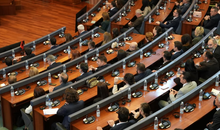
 Flash News
Flash News
Suspected of being murdered, photo emerges of 23-year-old found dead in Shkopet lake
Theth action, resident in tears: I built on my land with my life's expenses, the state should not destroy it
Directors targeted! After Fier and Durrës, Rama arrives in Elbasan
Name/Identification of the 23-year-old found dead near Shkopet Lake
IKM action in Theth, residents come out in protest
Parliament ratified migrant agreement with Italy, AP: Rights activists concerned

Albania has agreed to host two migrant processing centers on its territory that will be run entirely by Italy, under a deal that worries many human rights activists. The European Union, however, sees the agreement as a possible model in the future.
Italy has long complained about a lack of sufficient help from its EU partners in dealing with migrants arriving on its shores from north Africa. Italy's right-wing Prime Minister Giorgia Meloni is keen to show she is taking action after arrivals rose 55% this year to almost 160,000.
In January, Italy's lower house of parliament approved the new deal with non-EU Albania, followed a month later by the Senate.
Also in January, Albania's Constitutional Court rejected a legal challenge that could have blocked the deal. Albania's parliament approved the deal by 77 votes to zero on Thursday, with 63 lawmakers marked as absent as the opposition refused to attend. The president will also issue a decree as the final step of approval.
What is known about the deal?
Under a five-year deal announced in November, Albania will host up to 36,000 migrants a year while Rome expedites their asylum applications.
Those caught within Italian territorial waters, or by rescue vessels operated by non-governmental organisations, would retain their right under international and EU law to apply for asylum in Italy and have their claims processed. their there.
Italy has agreed to take back any migrant whose application is rejected and they are likely to be repatriated. Children and pregnant women will not be covered by the plan.
One of the processing centers will be located in the port of Shengjin, one of the main tourist areas on the Adriatic Sea, about 75 kilometers (46 miles) south of the Albanian capital, Tirana.
The second facility will be 20 kilometers (12 miles) north at a former military airport in Gjader. Italy will spend about 600 million euros ($650 million) over five years to build and operate the two centers under Italian jurisdiction. Up to 3,000 migrants can stay in both facilities at the same time. External security will be provided by Albanian guards.
The facilities are expected to be operational by spring.
What does Italy get?
The deal could help ease chronic overcrowding at Italy's initial asylum processing centers, which hold hundreds of thousands of migrants after dangerous sea journeys across the Mediterranean from Libya, Tunisia, Turkey and other countries.
Italy has asked for more help from its EU countries.
Many of the migrants are not eligible for asylum as they leave because of poverty, not persecution or war. While they wait for a final decision on their asylum claims, many go to northern Europe, hoping to find family or work.
What about Albania?
When the agreement was announced, Meloni said that Albania "behaves as if it were one" of the EU member states. Albania "is not only a friend of Italy, but also a friend of the European Union", she said. Many in Albania see it as a reward for Italian hospitality when thousands of Albanians fleeing poverty after the fall of communism in 1991 found refuge in Italy.
Albania, a small Western Balkan country, does not belong to the EU but is seeking membership, having started talks with Brussels last year. Despite its poverty, it has a history of accepting refugees, including members of China's Uyghur ethnic group, Afghans and dissidents from Iran, and took in a million ethnic Albanians from neighboring Kosovo during the war in 1999.
But members of Albania's center-right opposition opposed the deal on human rights grounds. Thirty opposition lawmakers went to the Constitutional Court in an unsuccessful attempt to block ratification.
What are the humanitarian and legal considerations?
Migration experts say the deal follows a worrying trend of EU countries looking beyond the bloc's borders to manage migration. Denmark has floated the idea of sending asylum seekers to be held in African countries.
The Council of Europe's human rights commissioner has raised a number of concerns, including whether migrants will have access to adequate legal aid.
The European Commission, which oversees the implementation of EU laws, left the door open to the deal, as long as it only applies to migrants caught in international waters.
The Institute for Migration Policy in Europe says the agreement does not outline which migration procedures will be followed, leaving open questions about how exactly the process would work. AP
Latest news



The head of the Rinas police station is reconfirmed in office
2025-07-09 11:25:03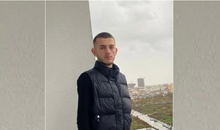

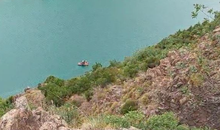
Found dead in Shkopet Lake, 23-year-old has injuries to his throat
2025-07-09 10:41:39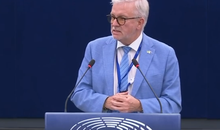


Hoxha: We will have a parliament that will surpass any comedy program!
2025-07-09 10:10:32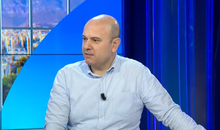

Directors targeted! After Fier and Durrës, Rama arrives in Elbasan
2025-07-09 09:53:57
Name/Identification of the 23-year-old found dead near Shkopet Lake
2025-07-09 09:42:34
IKM action in Theth, residents come out in protest
2025-07-09 09:34:54
Reasons why the EU has not imposed new sanctions against Russia
2025-07-09 09:18:35
DW: Online scams increase human trafficking
2025-07-09 09:01:29

Reported missing by his father, 23-year-old found dead near Shkopet lake
2025-07-09 08:42:13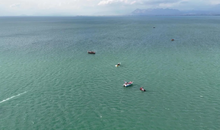

Horoscope, what do the stars have in store for you today?
2025-07-09 08:25:44
Sun and rain, Wednesday with unstable weather
2025-07-09 08:06:58
Posta e mëngjesit/ Me 2 rreshta: Çfarë pati rëndësi dje në Shqipëri
2025-07-09 07:52:02

Tabaku: Salianji bore a political cost that no one in Albania has borne
2025-07-08 22:36:15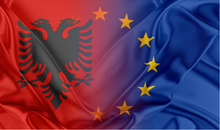


Sekretet për të shijuar verën si një ‘profesionist’
2025-07-08 21:45:06


Albania's Waste Crisis: Toxic Smoke and Deep Governance Problems
2025-07-08 21:13:07
Alarming pollution in Fushë-Arrëz, copper factory waste turns the Fan River red
2025-07-08 21:07:14

Poll/ How do you assess the Prime Minister's intervention in local government?
2025-07-08 20:40:01
28 arrested in Italy and Spain for drug trafficking, including an Albanian
2025-07-08 20:24:14
Residents clash with police in Theth: We are on our land
2025-07-08 20:11:41
Death of 27-year-old in Lipjan, Osmani: To be investigated independently!
2025-07-08 20:06:52
Trump promises US will send more weapons to Ukraine
2025-07-08 19:54:25

EU targets health, education, police and cadastre as areas of corruption
2025-07-08 19:23:34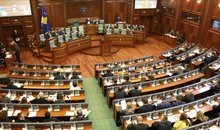




Salianji after his return: I did not oppose for functions, but for vocation
2025-07-08 18:23:15
Will he run in the 2029 elections? Here's how Salianji answers
2025-07-08 18:16:09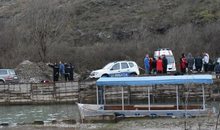
Boat captain drowns after diving into water to save two tourists in Shkodra
2025-07-08 18:05:12
Salianji from the DP headquarters: I brought a drug trafficker to justice
2025-07-08 18:03:26
After Fier, Rama "landes" in Durrës, dismissals expected
2025-07-08 17:53:32
Ervin Salianji arrives at the blue headquarters, welcomed by supporters
2025-07-08 17:45:12

EU approves final steps for Bulgaria's Eurozone membership
2025-07-08 17:43:06

Zhupa after Salianj's release: Inspiration for every opposition member
2025-07-08 17:19:39
Actor David Killick passes away
2025-07-08 17:09:23



Threatened with dismissals, Rama arrives at the Fier municipality
2025-07-08 16:39:19
Extreme temperatures temporarily close Acropolis in Greece
2025-07-08 16:30:34

A plot of cannabis is discovered in Mazha, Kruja
2025-07-08 16:13:48

Republika Srpska allocates additional 22 million euros for lobbying in the US
2025-07-08 15:52:04

Spices that protect you from mosquitoes!
2025-07-08 15:30:03

Accident on the Vlora-Qeparo axis, one injured
2025-07-08 15:11:52
Berat, 17 years part of UNESCO's world heritage
2025-07-08 15:03:30
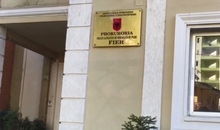

Cost of living increases, inflation rises to 2.4% in June, driven by food
2025-07-08 14:29:54
VIDEO/ Restaurant roof collapses in Italy, one victim and ten injured
2025-07-08 14:18:44
Requested release from cell, Supreme Court leaves Veliaj in prison
2025-07-08 14:07:41
TikTok shutdown/ Austrian media: Rama benefited politically from the app ban
2025-07-08 13:48:25
Acropolis temporarily closed due to heat
2025-07-08 13:31:09



Salianj's release/Berisha: He was politically condemned by Rama and Xhafa!
2025-07-08 13:00:13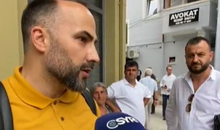

Knife attack on Peshkopia Boulevard
2025-07-08 12:44:10


Fier Court decides on the conditional release of Ervin Salianj
2025-07-08 12:15:23
Cost of living increases, inflation rises to 2.4% in June due to food
2025-07-08 12:00:16

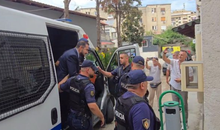
Requesting conditional release, Ervin Salianji arrives at the Fier Court
2025-07-08 11:16:36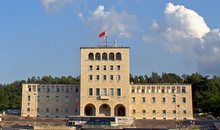
The first phase of university applications begins today
2025-07-08 11:10:52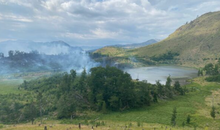
Fire in Lura, flames endanger the National Park
2025-07-08 10:53:43
Trump warns of 35% tariffs on Serbia and 30% on Bosnia and Herzegovina
2025-07-08 10:37:32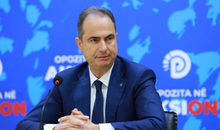
Thethi rooster and the dung cock
2025-07-08 10:24:01

Fire in Dukat endangers Llogara National Park
2025-07-08 10:01:39
International drug search: 36-year-old arrested in Durrës (NAME)
2025-07-08 09:50:48
Thethi, tourists "criticize" modern trend
2025-07-08 09:39:54
Fire on Mount Dukat still active, Llogara National Park at risk
2025-07-08 09:28:12
Veliaj's appeal to be heard today in the High Court
2025-07-08 09:16:02
"Bad sign for democracy"/ Parliament neglects reporting by institutions
2025-07-08 09:04:56
Today's hearing at the Fier Court, Salianji requests conditional release
2025-07-08 08:56:39
